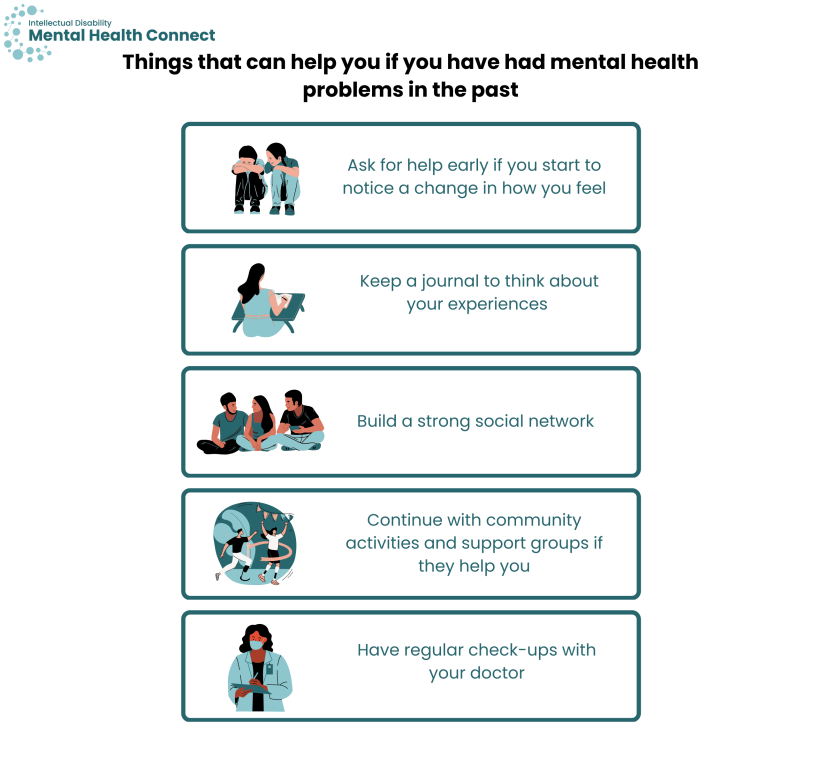Ideas for staying healthy and feeling well
On this page, we give some ideas for how to stay healthy and feel well. All of these ideas can help you to have good mental wellbeing. They can also help you to cope when faced with challenges. To cope means to manage challenges in your life without feeling too stressed.
These ideas can also help you to recover (get better) if you have had mental health problems in the past. It is important to:
- build a strong social network of carers, family members, friends and supporters
- continue with community activities and support groups if they help you
- have regular check ups with your doctor and talk to them about managing any physical health problems
- keep a journal to think about your experiences and plan ahead for any tough times
- ask for help early if you start to notice a change in how you are feeling. You can talk to someone you trust, such as a carer, family member, friend, support worker or GP. For more information see When to get help and Where to start to get help.

Do activities, with help or support from others if needed
Being engaged in an activity or with people is important. It provides a sense of meaning or achievement. Having a sense of meaning gives us a feeling of being part of something and that life is useful and valuable. Being engaged can also help distract people from negative thoughts or feelings and the things going on around them.
Some examples of activities you can engage in include:
- going to social events that you are interested in. There are many community groups that offer social outings and activities (e.g. Gig Buddies, Disability Trust).
- joining a group where you can talk to others (e.g. support groups like One Door Mental Health)
- maintaining contact with family and friends if that is helpful for you (e.g. calling, visiting or asking them to visit you)
- practising relaxation techniques (e.g. using the Smiling Mind app or meditating)
- exercising (e.g. walking, swimming, team sports) and being in nature
- finding healthy foods you enjoy to have a balanced diet
- participating in hobbies, games or activities you enjoy
- taking trips away. There are groups that can help you with this (e.g. Trusted Travel).
Have purpose or meaning
People who have a sense of purpose are better able to cope in difficult times and have better overall wellbeing. Having purpose or meaning gives us a feeling of being part of something and that life is useful and valuable.
Some examples of things you can do to have purpose or meaning include:
- being involved in community projects (e.g. fundraising, beach clean ups)
- finding employment or volunteering opportunities (e.g. Disability Gateway, The Centre for Volunteering)
- being an advocate for yourself and/or others to speak up for your rights. See the How to advocate section.
- taking part in tasks that can increase your skills
- taking note of your strengths and participating in activities that use them
- taking note of things that have gone well
- setting goals.
Resources
There are resources that can help you to set goals. The Council for Intellectual Disability (CID) me360 cards can help you to think about what is important to you and what you need to live a good life.
All of the above suggested activities can help you to have positive emotions. Experiencing positive emotions makes you feel good, but also has benefits for other areas of life. Positive emotions can improve physical health and problem solving. What people find positive or enjoyable is unique to that person. It is important to take the time to think about or find out what is positive to you.
